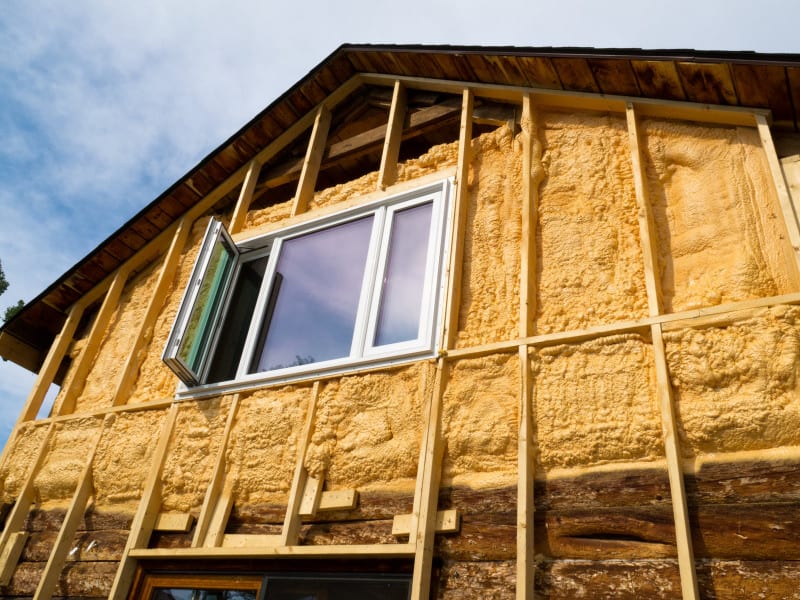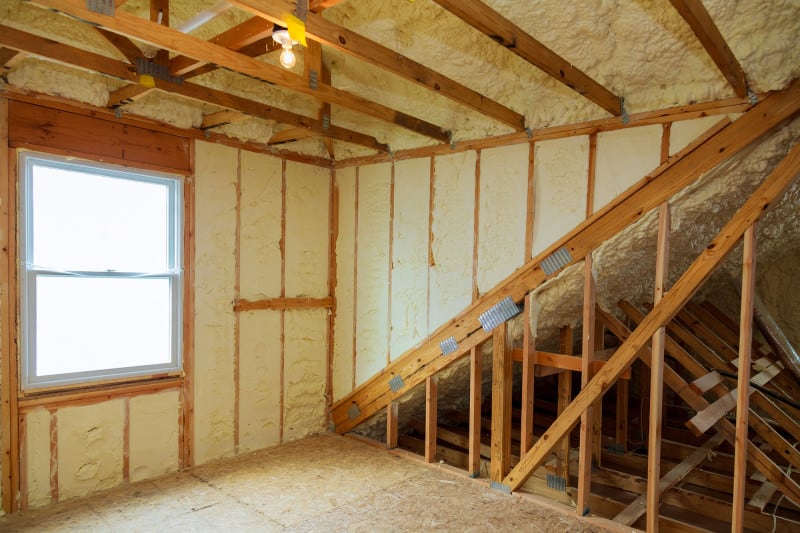When it comes to home insulation, there are many options to choose from. One of these is spray foam insulation, which has become increasingly popular in recent years. But does this type of insulation reduce the value of your home as some people have been led to believe?
The short answer is: no, spray foam insulation will not reduce the value of your home. In fact, it may actually increase the value, as it is a highly effective insulation material that can save homeowners money on energy bills.
That being said, there are some potential downsides to spray foam insulation that could make it less appealing to potential buyers. For instance, if the foam is not properly installed, it could mean some cavities are not well insulated. In this article I will explain the pros and cons of spray foam insulation so you can see why it is not likely to devalue your house.
What is spray foam insulation made of?
Spray foam insulation is made from two main ingredients: polyol resin and isocyanate. These two ingredients are mixed together and then sprayed onto the desired area.
When the two ingredients mix, they create a chemical reaction that causes the foam to expand and harden. This process is known as “curing.”
The polyol resin is a type of alcohol that is derived from petroleum. It is a viscous, clear liquid that is mixed with the isocyanate. The isocyanate is a type of gas that is also derived from petroleum. It is what gives the spray foam its expanding qualities.
After the spray foam insulation is applied, it will start to harden within seconds. It will continue to expand for a few minutes and then it will stop. The spray foam will then start to set and will be completely dry within a few hours.
How long does spray foam insulation last?
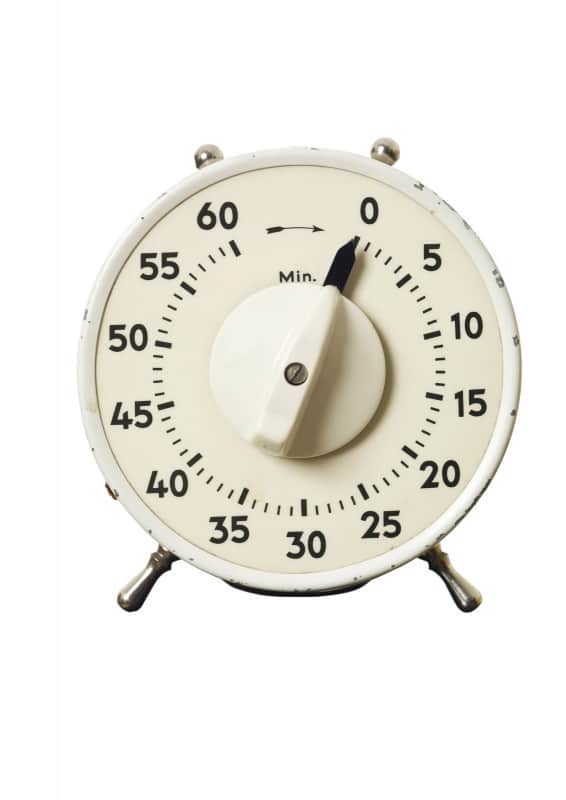
Spray foam insulation is one of the most popular types of insulation on the market today. And for good reason too – it’s incredibly effective at keeping your home warm in winter and cool in summer.
But how long will it actually last after application?
The answer is that spray foam insulation can last for decades – anywhere from 80 to 100 years!
One of the reasons spray foam insulation has such a long lifespan is that it doesn’t degrade over time like other types of insulation.
Fiberglass, for example, can start to sag and lose its effectiveness after just a few years. But spray foam retains its shape and performance for the long haul.
Another reason spray foam insulation lasts so long is that it’s not affected by moisture or pests like other types of insulation. So you don’t have to worry about it losing its effectiveness over time due to water damage or pests.
Of course, no type of insulation is indestructible. So it’s important to take care of your spray foam insulation to ensure it lasts as long as possible. Here are a few tips:
- Avoid walking on your spray foam insulation. It can damage the insulation and shorten its lifespan.
- Keep an eye out for any cracks or holes in your spray foam insulation. If you find any, seal them up as soon as possible to prevent heat from escaping.
- If you’re planning on doing any renovations that involve cutting into your spray foam insulation, be sure to hire a professional. They’ll know how to properly seal up the insulation, so it doesn’t lose its effectiveness.
By following these simple tips, you can help ensure your spray foam insulation lasts for decades. And that’s good news for your wallet – and the environment.
What is the price of spray foam insulation?
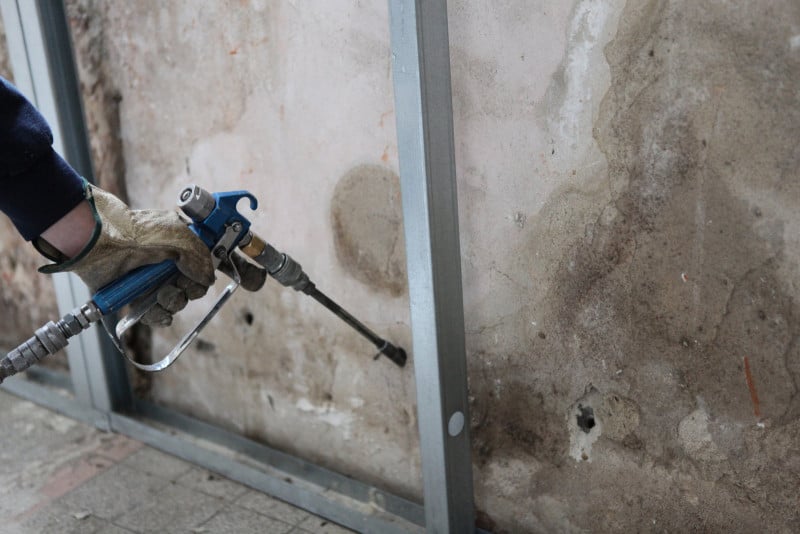
We already know that spray foam insulation is one of the most popular insulation materials on the market today. But how much does spray foam insulation cost?
Generally speaking, the cost of spray foam insulation can range from around $0.50 to $2.00 per square foot, and the cost will usually depend on whether it is an open-cell or closed-cell foam. That means that the cost to insulate a 1,000 square foot home could be anywhere from $500 to $2,000.
There are two main types of spray foam insulation: closed cell and open cell.
Closed cell spray foam is denser and more effective at blocking out air and moisture. It is also more expensive, with prices ranging from $1.00 to $2.00 per square foot.
Open cell spray foam is less dense and not as effective at blocking out air and moisture. It is also less expensive, with prices ranging from $0.50 to $1.00 per square foot.
The climate in your area will also affect the cost of spray foam insulation. In colder climates, closed cell spray foam is the better choice because it does a better job of keeping heat in.
In warmer climates, open cell spray foam is the better choice because it does a better job of keeping heat out.
No matter what type of spray foam insulation you choose, it is important to compare prices from different companies before making a purchase. Some companies may offer discounts for larger projects, so it is always worth asking about discounts.
In the end, the cost of spray foam insulation is worth it because it is an effective way to save money on your energy bills.
It is also a good way to help the environment by reducing the amount of energy used to heat and cool your home.
Does spray foam insulation cause mold?
Spray foam insulation is a type of insulation that is sprayed onto a surface in order to insulate it.
Many people worry that spray foam insulation will cause mold to grow, but there is no evidence to support this claim.
In fact, spray foam insulation actually helps to prevent mold growth by creating a barrier that prevents moisture from penetrating the surface.
Do termites eat spray foam insulation?
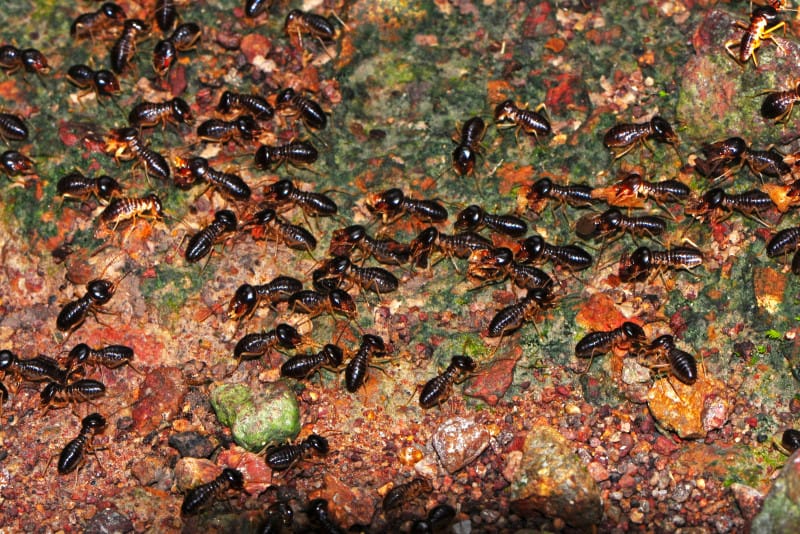
If you have spray foam insulation in your home, you can rest assured that termites will not be eating it.
That’s because spray foam insulation is not a food source for these pests. While termites will happily feast on wood and other cellulose materials, they will not touch spray foam.
So why is this? Well, spray foam insulation is made from synthetic materials like polyurethane. This type of material is not on the menu for termites.
In fact, most insects are not able to digest synthetic materials like this. So, even if a termite were to take a nibble of your spray foam insulation, it would not be able to digest it and would eventually die.
So there you have it. If you’re worried about termites eating your spray foam insulation, you can rest easy knowing that it’s not a food source for these pests.
What are the benefits of spray foam insulation?
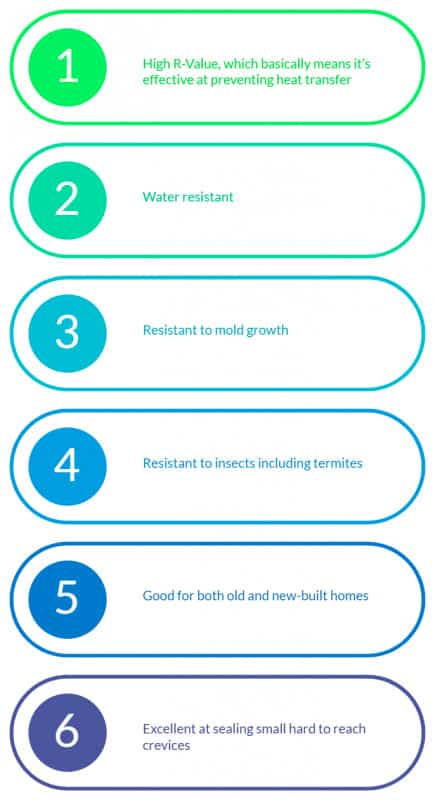
- High R-Value, which basically means it’s effective at preventing heat transfer
- Water resistant
- Resistant to mold growth
- Resistant to insects including termites
- Good for both old and new-built homes
- Excellent at sealing small hard to reach crevices
What are the disadvantages of spray foam insulation?
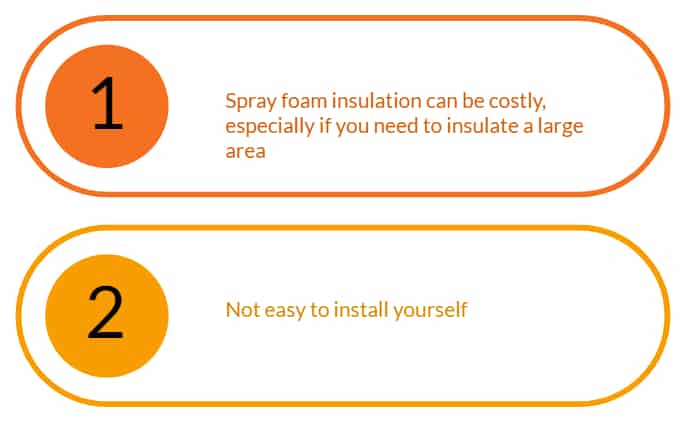
- Spray foam insulation can be costly, especially if you need to insulate a large area
- Not easy to install yourself
Is Spray Foam insulation worth the investment?
If you’re looking to make your home more comfortable and save money on energy bills, spray foam insulation is a great option.
It’s estimated that homes insulated with spray foam can save up to 50% on energy costs.
Spray foam insulation is also environmentally friendly, as it doesn’t use any harmful chemicals. It’s also a great way to reduce noise pollution, as it effectively soundproofs your home.
Overall, spray foam insulation is a great investment for your home. It will make it more comfortable and save you money in the long run.

